SUMMARY
This is AI generated summarization, which may have errors. For context, always refer to the full article.
![[ANALYSIS] Will the Philippines go the way of Myanmar and Cambodia?](https://www.rappler.com/tachyon/2021/04/myanmar-tragedy2.jpg)
The following is Part 2 of a two-part series. Read Part 1 here.
The Philippine tradition of democracy is older than ASEAN’s founding, its tradition of human rights deeper than the State’s cynical promise of non-interference. Not for nothing do we bear the honor of being Asia’s oldest modern democracy. Not for nothing is the contributor to ASEAN’s ideals a Filipino: Fidel Ramos. Indonesia may be the geostrategic regional leader, but for human rights and democratic norms, they look to us, even in the times when we breach these rights and norms.
The cynic remarks that we can be depended on by ASEAN to put on a friendly, Westernized face to woo the international community. But this runs both ways: Manila can be criticized simultaneously for being “Washington’s stooge,” and for running interference for her ASEAN peers facing human rights criticisms.
Yet at the heart of the cynic’s observation is, if not the State’s, then its peoples’ earnest faith in liberty, equality, and democracy. In the same breath in 2011 did the State, through DFA Secretary Alberto del Rosario with ASEAN, urge the West to withdraw economic sanctions against Myanmar, and urge Myanmar to free political prisoners. Consistently, even under the present administration, we remain on offer to take in Rohingya refugees seeking shelter from civil war, even though this administration takes a silent stance on the present strife.
The Philippines upholds both her international obligations and her long-running traditions: a foreign policy reflecting her democratic character (if not her inherent nature), her constitutional mandates, a shared understanding with ASEAN that supporting the liberal norms of the present international order guarantees the region’s economic prosperity and thus the time and space to stabilize, and her links between West and East alike. Not to mention that her foreign service is agile and adroit, at least among the rank and file, no matter the uncertainty at the top-floor office or across the Pasig River.
The painful silence of the Philippines
So why the silence on Myanmar and Cambodia? The DFA would have briefed its political masters by now on Myanmar, Cambodia, ASEAN, and the importance of them all to our national interests – our real national interests, not determined by whimsy, but by our material needs, assets, and vulnerabilities within ourselves and the region, by our long-standing values, our international partnerships and reach, our historical depth.
Is our silence surrender to what is now being called the reversal of the democratic wave, our surrender to the cynical voices who say democracy, a people’s liberty and rights, never amounted to any good? Or is there another reason? A besieged opposition, the sidelining and isolation of key democratic figures, blood on the streets and in homes of ordinary peoples, Western condemnations and Beijing overtures, the marginalization of ASEAN and all the work to bring the region forward together?
But what makes the familiarity so painful is that the Philippines is not one of the post-communist states that joined ASEAN after the Cambodian peace efforts of 1991, when the organization could bask in its plaudits. We were not one of the newcomers who wanted to marry our transitioning economies to the burgeoning Southeast Asian Tigers. We were there from the start – one of the founding members!
And our silence, our retreat from our ASEAN and international commitments, is a betrayal of who we are to the region and the world, and most of all to ourselves: a country that declares in her Constitution that she “adopts the generally accepted principles of international law as part of the law of the land and adheres to the policy of peace, equality, justice, freedom, cooperation, and amity with all nations,” and that she “shall pursue an independent foreign policy.”
At the moment when we, together with the rest of ASEAN and the international community, should be holding the center, we instead say “The center cannot hold, so why bother?”
Why bother looking at the mirror, and see that 20 years of strongman rule brought the Philippines no glory, bought no true prosperity, its people only bathed in blood and trauma, and that it is happening all over again? And to those who would say that our human rights efforts are meaningless (“walang napala”) and that the center cannot hold, would they not behold the works of Ozymandias instead, and despair that “Nothing beside remains. Round the decay/Of that colossal wreck…/The lone and level sands stretch far away?”
A renewed ASEAN is needed
Where do we go from here, if not the lone and level sands? Beset by a global pandemic, the continuing challenge of ensuring the economic health of its societies, and an increasingly uncertain global political dynamic, the region can ill afford Cold War 2.0, repeating the original’s sins and some new ones besides. ASEAN was formed, cynically and ideally, precisely so that the region could survive those sins. The present Myanmar strife promises these sins 2.0, an isolated and isolating Hun Sen prophesies these sins 2.0. And the Philippines, ASEAN founding member, Asia’s oldest modern democracy, is reenacting these same Cold War-era sins, 2.0.
If there was a time to speak out, whether Manila or ASEAN, it is now. A country that has had her own equally bloody and tragic experience can do more. Our own country’s experience may pose ample warning, and a better example. The mailed fist and bloody strongmen never delivered the glory the Philippines deserved, the prosperity long denied to Filipinos. And history and human nature has shown that trying it again will still not reap its false glories. And it won’t in Cambodia, nor in Myanmar. It won’t in the Philippines. It won’t in the region, or in the world. Behold the works of Ozymandias, and despair.
But perhaps Fidel V. Ramos, the best President in modern Philippine history, who was once a soldier, once part of that mailed fist, brought us closest to glory and prosperity when he stepped out of the uniform, spoke out against the mailed fist, and put himself at the humble service of his country’s peoples. Not for nothing is he the contributor to the ASEAN ideal of a “caring and sharing” community. Not for nothing does he defy despair. Not for nothing are we calling for the country, the region, the world to remember that contribution, and live up to it, instead of taking all life down ignoring or defying it.
However cynical global politics often is, Myanmar, Cambodia, and yes, the Philippines, deserves better. ASEAN and the world deserves better. We all do. – Rappler.com
Tony La Viña teaches law and is former dean of the Ateneo School of Government.
Christian Laluna is a graduate of the Ateneo Law School. He is writing a book with La Viña on the Bill of Rights during the pandemic.
Add a comment
How does this make you feel?
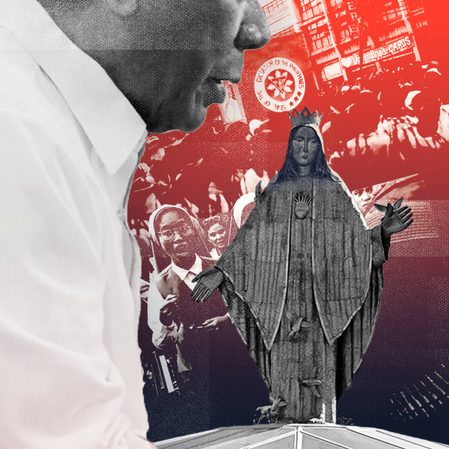
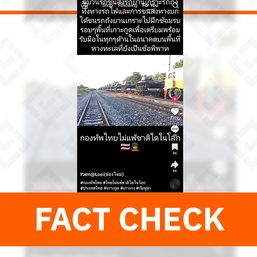
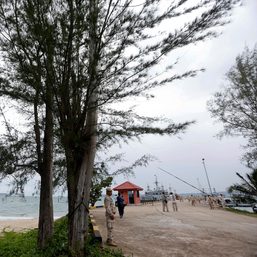
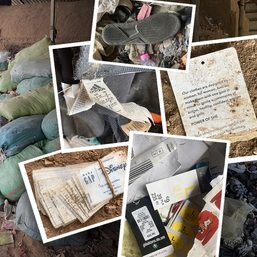
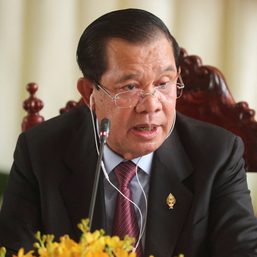
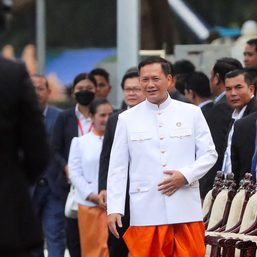
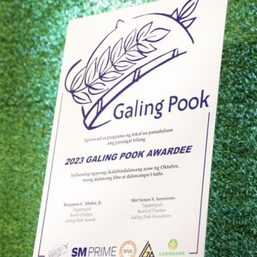
![[Newsstand] The Marcoses’ three-body problem](https://www.rappler.com/tachyon/2024/04/tl-marcoses-3-body-problem.jpg?resize=257%2C257&crop=451px%2C0px%2C1080px%2C1080px)
![[Edgewise] Preface to ‘A Fortunate Country,’ a social idealist novel](https://www.rappler.com/tachyon/2024/02/a-fortunate-country-february-8-2024.jpg?resize=257%2C257&crop_strategy=attention)
![[New School] When barangays lose their purpose](https://www.rappler.com/tachyon/2024/02/new-school-barangay.jpg?resize=257%2C257&crop=414px%2C0px%2C1080px%2C1080px)
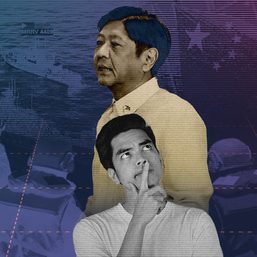
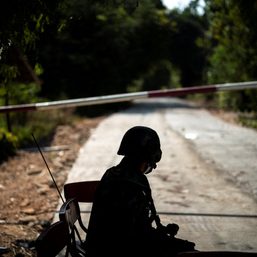
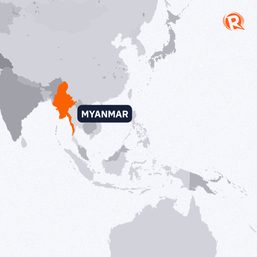
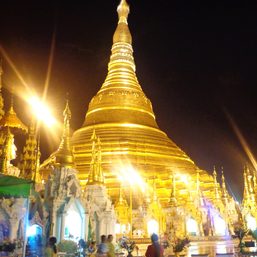
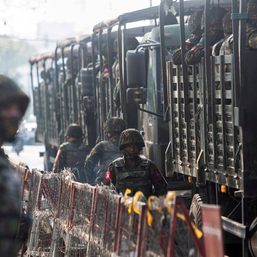
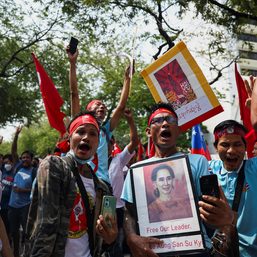
There are no comments yet. Add your comment to start the conversation.